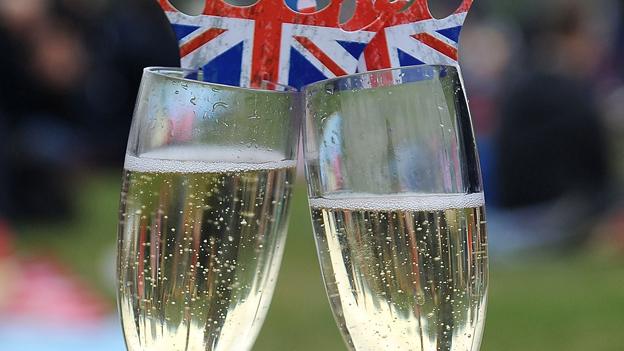English vineyards hit by 'catastrophic' frost, wiping out half of harvest
- Published
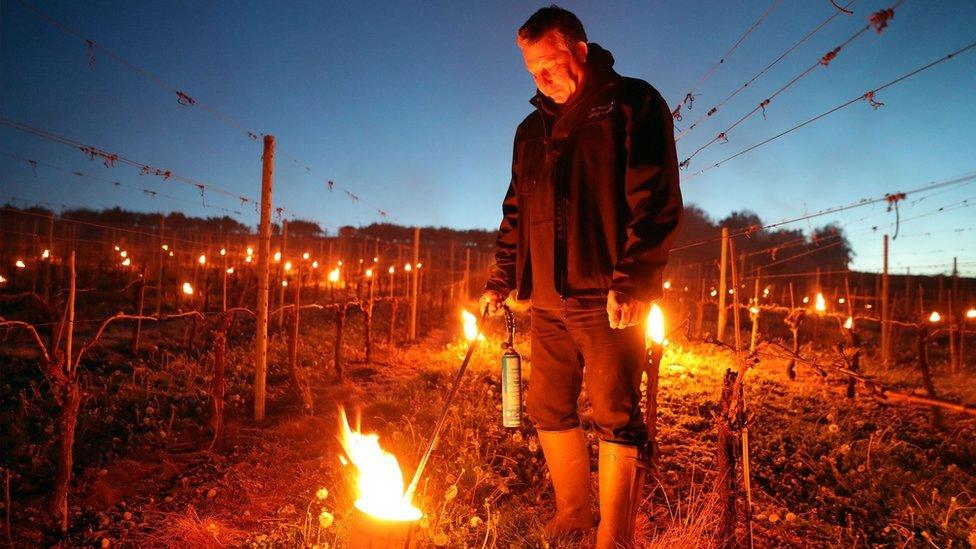
Candles - or bougies - being lit at the Leckford Estate vineyard in Hampshire
English winemakers have warned that at least half of this year's grape harvest has been wiped out by heavy frost.
The air frost that hit last week caused "catastrophic" damage to buds that had bloomed earlier than usual thanks to a warm start to the year.
About 75% of buds at Denbies Wine Estate in Surrey - which produces 500,000 bottles of wine a year - were affected, its chief executive said.
England has 133 wineries, which produced five million bottles in 2015.
Damage is 'blow'
Chris White, of Denbies, said the "catastrophic" damage had been "a blow".
"It was an early start to the year with the mild weather," he added.
"Although we do get frosts at this time of year, because of the advanced stage of the buds and the sheer drop of temperature, down to -6C (21F), none of the measures we put in place made any difference."
Those measures included frost fans to keep air moving, and a "frost blaster" which warms the air around the vines, as well as hundreds of candles that are lit and placed under the vines.
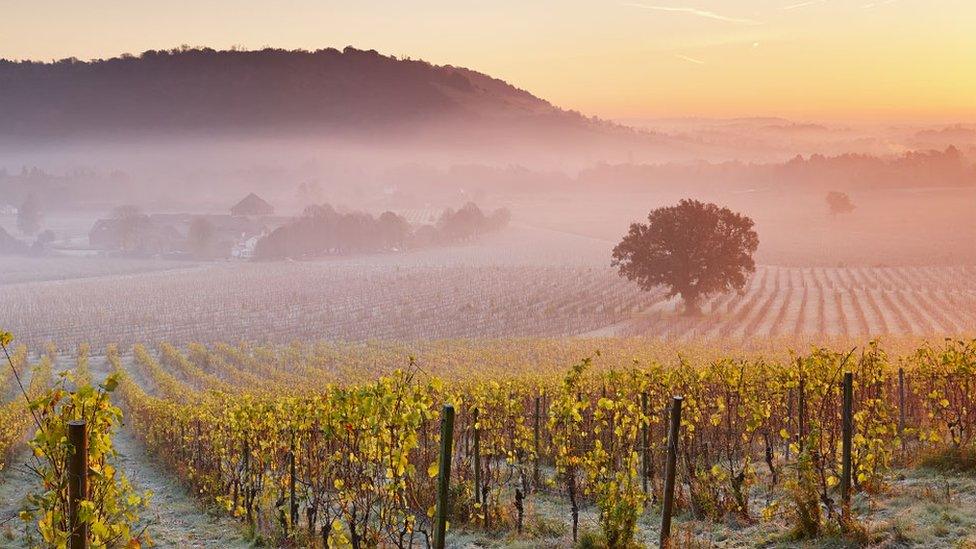
Denbies Wine Estate produces half a million bottles of wine a year
"Most vineyards in England will have been affected to some degree," said Mr White. "Being in agriculture, we have to have broad shoulders and navigate these problems. With the weather, we're in the lap of the gods.
"Confidence in the English wine industry has never been higher, but because it's an agricultural business there are the risks that go with that."
A million vines are being planted in England and Wales in 2017 - the largest planting in a single year, according to industry body English Wine Producers. Most are the champagne variety, to produce sparkling wine, with most being planted in south-east England.

Wine-making in England
Vineyards are mostly situated in Hampshire, Isle of Wight, Surrey, East and West Sussex, and Kent, which have approximately 908 hectares between them.
There are a further 221 hectares in Cornwall, Devon, Dorset, Somerset, Wiltshire and Gloucestershire.
The main vines grown in the UK are the sparkling wine varieties, mainly Chardonnay (approximately 347 hectares) and Pinot Noir.
Wine-making was brought to Britain by the Romans about 2,000 years ago.
By the time of Henry VIII there were 139 sizeable vineyards in England and Wales.
Vineyards reduced over next few centuries, partly due to climate changes.
In 1952 the first commercial vineyard was planted since 1875, in Hampshire.

The number of vineyards in England is at its highest, external since records became compulsory in 1989, with 502 in 2015 - an increase of nearly 100 in a five-year period.
In 2010, the number of bottles of wine produced was 4.05 million, with 5.06 million produced in 2015.
Julia Trustram Eve of English Wine Producers said: "If you compare us as a wine-producing nation to most other regions in the world, we're miniscule.
"But if you look at our rate of growth, we've more than doubled our hectarage in the last 10 years."
She added that it was too early to tell what the impact of the April frost would be, and noted that winemaking industry across "the whole of Europe" had been affected.
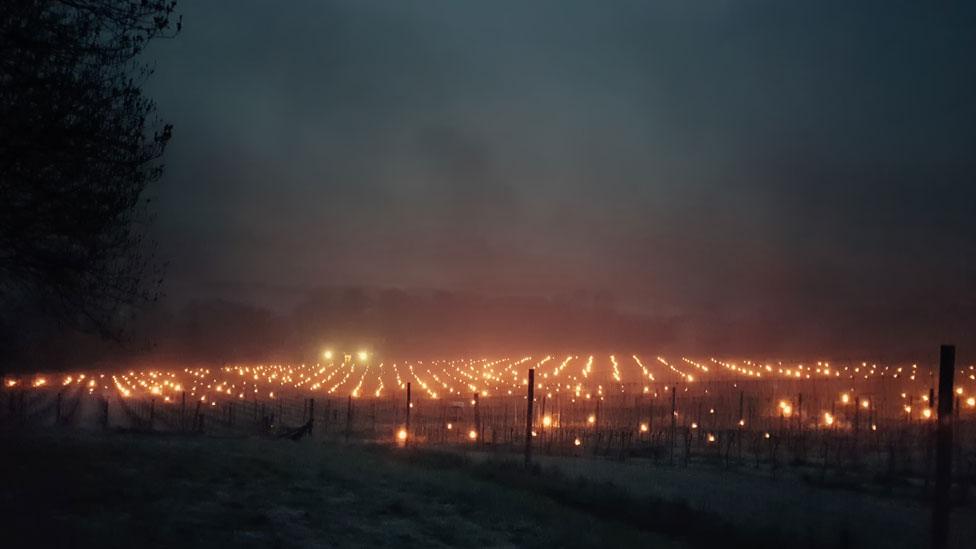
Lit candles at the Albury Vineyard in a bid to ward off the frost
Nick Wenman, founder and owner of Albury Organic Vineyard in Surrey, said it was the air frost that was particularly damaging, with three bad nights last week - the worst being the night of 26 April.
"It was like an Arctic wind which blew through the vineyard and froze everything in its path," he told BBC Radio 4's Today programme.
While secondary buds are expected later in the year, these are "never as fruitful" and do not have as long to ripen, he added.
He said 70-80% of buds at his vineyard had been affected which will mean at shortfall of 50% of its yield.
"It's a long-term business so we have to have a long-term view, but it's certainly not good news," said Mr Wenman. "If it happened every year, it would be something we couldn't put up with."
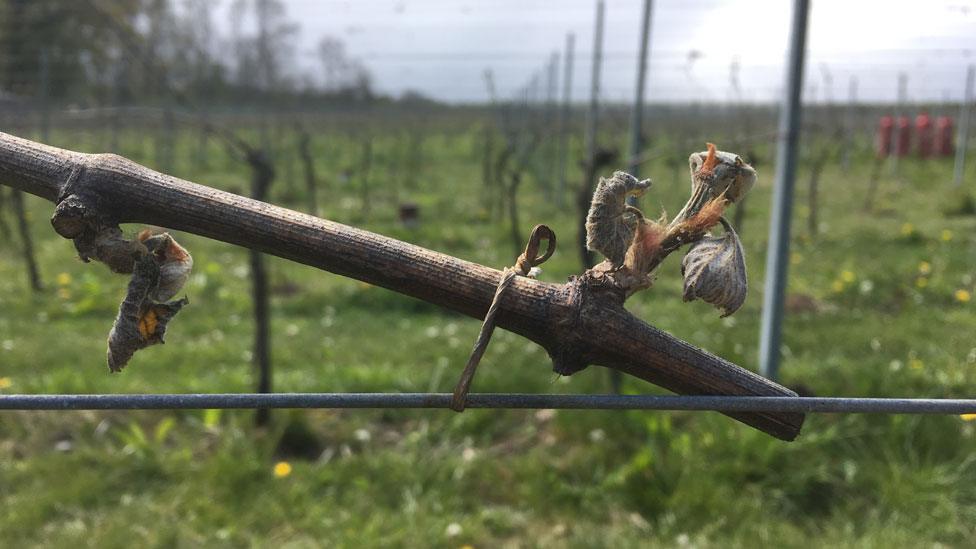
A damaged bud at the Albury Vineyard in Surrey
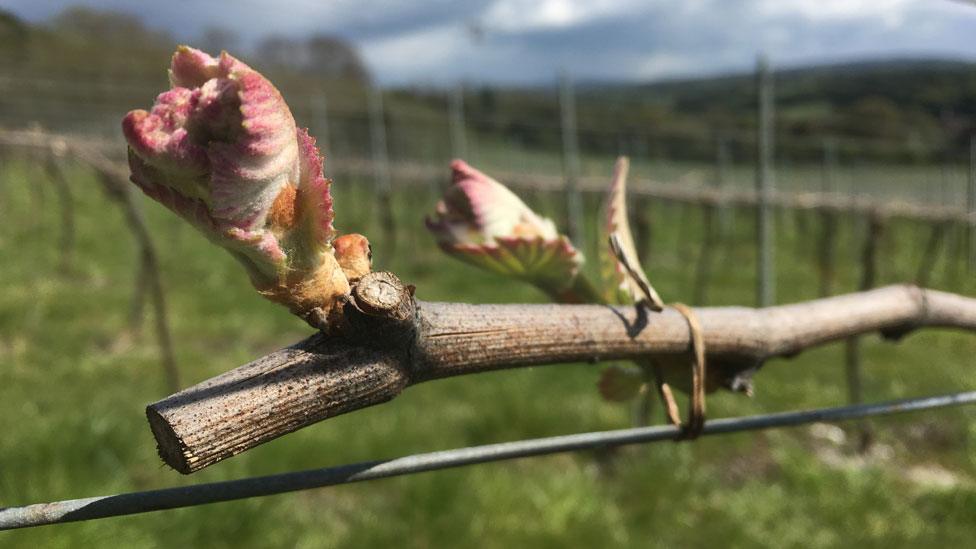
How a healthy bud should look
Mr Wenman wrote on his blog, external that it had been one of the hardest weeks he had faced since planting the vineyard eight years ago.
"It's been a stark reminder of the difficulties faced by wine producers in the country and, yes, at this moment we are indeed asking ourselves whether we were mad to try and grow vines in England."
Almost 1,000 candles - known as bougies, after the French word - were lit under vines at Albury when the frost was at its worst across the south of England.
About 80% of crops at Albury have been damaged.
"It's clearly a setback and will affect the number of bottles that are on the market in two to three years' time," he said. "England produces great sparkling wines and it takes that long from harvest to having the wine available.
"It's frustrating because it comes at a time when English wines are competing throughout the world and winning lots of international awards."
- Published14 March 2017
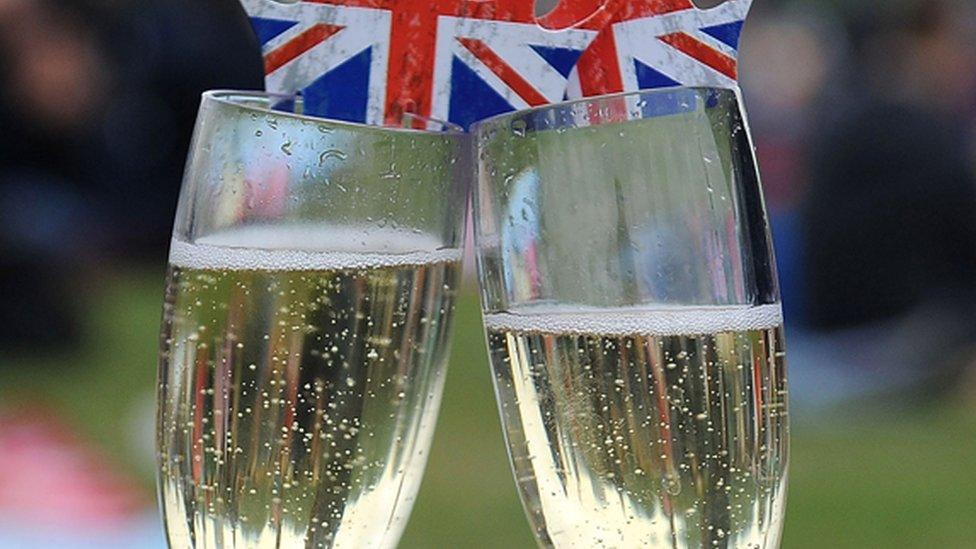
- Published29 March 2016
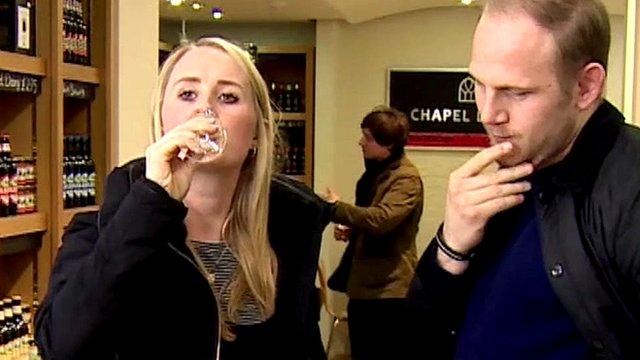
- Published10 December 2015
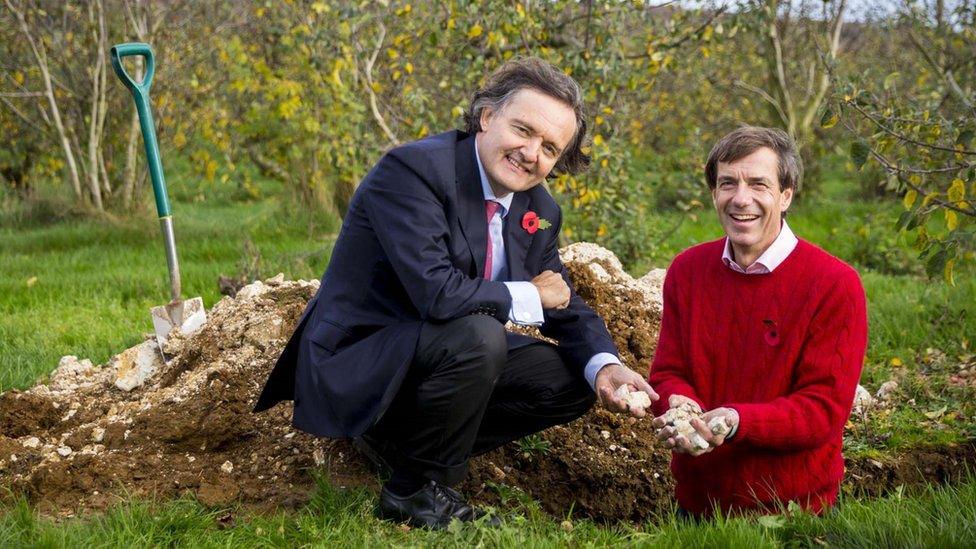
- Published11 July 2013
